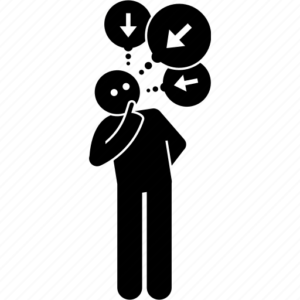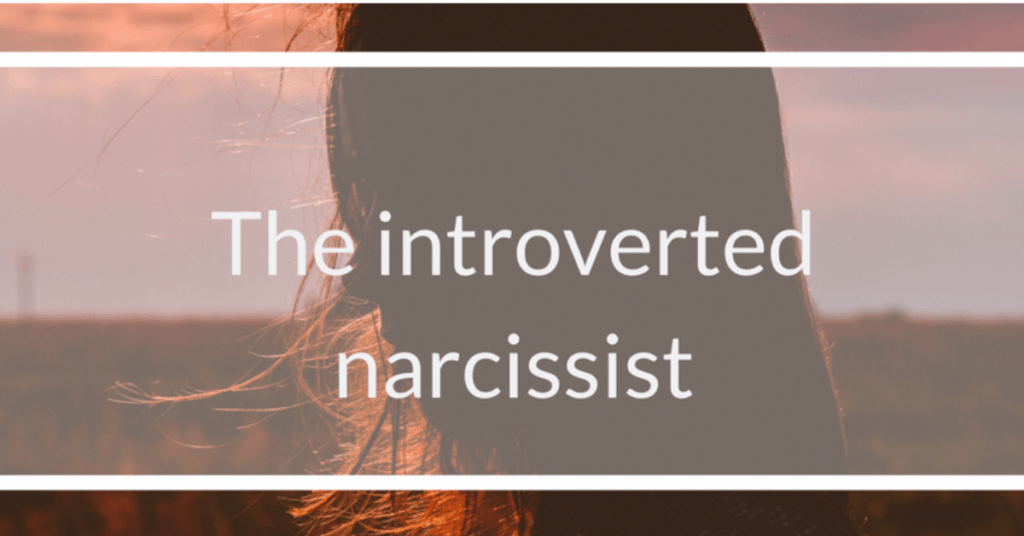The introverted narcissist is a personality type that many people experience in their lives, but don’t know how to identify. As the name implies, this person has narcissistic tendencies and experiences them as an introvert. They are often described as being self-absorbed or self-centered with a lack of empathy for others. Here we will explore what it means to be an introverted narcissist and why you should care if you know someone who fits this description.
Contents
What Is Introverted Narcissist?
 Introverted narcissistic personality disorder (INPD) is a rare form of narcissism. This disorder is a pervasive pattern of grandiosity, need for admiration, and lack of empathy.
Introverted narcissistic personality disorder (INPD) is a rare form of narcissism. This disorder is a pervasive pattern of grandiosity, need for admiration, and lack of empathy.
People with INPD are usually very introverted and often have high levels of creativity and intelligence. They are also likely to be perfectionists.
Introverted narcissists often feel like they are misunderstood or underappreciated. They may be hostile or defensive when criticized.
INTJ personality type is the most common type among people with INPD. This type is characterized by their analytical and strategic thinking skills, as well as their preference for independence and solitude.
Signs of Introverted Narcissist

These are the signs of an introverted narcissist:
Creative And Intelligent
Creative and intelligent people are often more prone to narcissism. This is because they like to focus on their own interests and needs, which can lead them into grandiose fantasies and delusions of success and power.
Perfectionists
Introverted narcissistic people usually have very high standards for themselves as well as other people around them. They tend to be perfectionists in everything that they do, from work or hobbies up until relationships with others.
Hostile And Defensive
When criticized by someone who doesn’t agree with the introvert’s ideas or opinions; they may become hostile and defensive about it. Oftentimes, this behavior stems from a fear of inadequacy since deep down inside most INTPs feel inferior having an objective standard against which they measure themselves.
Lack of Empathy
People with INTP personality type lack empathy and tend to be detached, cold and unemotional towards others. They may also seem arrogant and egotistical due to their confidence in their own intelligence and beliefs.
High Expectations
These people often have high expectations for themselves and those around them. They want to be seen as perfect in the eyes of others and can get easily frustrated when they don’t meet their own impossibly high standards.
Preference For Independence
Introverted narcissists usually prefer to be alone or in small groups where they are the center of attention. They do not like large crowds or being around people who they deem beneath them intellectually or emotionally.
Causes of Introverted Narcissist
These are the causes of introverted narcissism:
Genetics
Genetics can play a role in the development of introverted narcissism. If one or both parents have a narcissistic personality disorder, it’s more likely that their children will also develop the disorder.
Environmental Factors
Environmental factors such as neglect, emotional abuse, and overpraise can contribute to the development of introverted narcissism. If a child is constantly praised for being smart or talented but never given love and support, they may become an introverted narcissist as an adult. This can also happen if their parents criticize or neglect them.
Also, the child may have grown up in a highly competitive environment where he had to be perfect and outperform others all the time just to get attention from his family members. Even though this led them to develop high standards for themselves, it could backfire when they begin comparing themselves to others and feel like they’re never good enough.
Trauma
Traumatic experiences such as a death of a loved one, physical abuse, or sexual assault can also lead to the development of introverted narcissism. When someone goes through a traumatic experience, they may try to cope by withdrawing from the world and focusing on their own needs and feelings. This can eventually turn into narcissistic behavior.
Abuse
Abuse in childhood, be it emotional or physical abuse can lead to the development of an introverted narcissist. If a child is constantly abused by people who are supposed to take care of them and this leads them into believing that they’re unworthy as human beings, then they may develop narcissistic behaviors later on in life. Also if someone’s parents are narcissists, they’re more likely to become one themselves.
Neglect
Neglect by parents can also cause the development of an introverted narcissistic personality. If a child is constantly neglected and ignored, they may come to believe that nobody cares about them or ever will care about them. When this happens, their self-esteem becomes damaged and they’ll try to compensate for it by behaving arrogantly towards others.
Diagnosis of Introverted Narcissist

Diagnosis of introverted narcissism can be difficult because there’s no one specific test that can identify this personality type. It’s usually diagnosed by a mental health professional after interviewing the person and looking at their history.
Introverted narcissists are often mistaken for shy or insecure people, but they’re actually quite different. Shyness is about feeling uncomfortable in social situations, while insecurity is about feeling unworthy of love and attention. Introverted narcissists crave attention and admiration from others, but they don’t feel comfortable around people who they deem inferior to them. They may also seem arrogant and egotistical due to their confidence in their own intelligence and beliefs. If you think you or someone you know may be an introverted narcissist, it’s important to seek help from a mental health professional.
Treatment For Introverted Narcissist

If you’re an introverted narcissist, it’s important to seek help from a mental health professional. There are many treatment options available that can help you manage your condition and live a healthier life. These are some treatment options for an introverted narcissist:
Therapy
Introverted narcissists often benefit from therapy. In therapy, they can learn to understand their own needs and feelings and develop empathy for others. They can also learn how to regulate their emotions and manage their perfectionism.
Medication
Medication can help with introverted narcissists’ depression and anxiety. This will allow them to focus on therapy and make progress.
Self-Care
It’s important for introverted narcissists to practice self-care. This includes things like getting enough sleep, eating healthy foods, and exercising regularly. It’s also important for them to have hobbies and activities that they enjoy doing outside of work or school. Spending time with loved ones is another important part of self-care.
How To Deal With Introverted Narcissist?
These are the ways to deal with introverted narcissists:
Avoid Conflict
Introverted narcissists thrive on conflict, so it’s best to avoid any kind of confrontation with them. If you can’t avoid a conflict, try to stay calm and be assertive without being aggressive.
Set Boundaries
It’s important to set boundaries with introverted narcissists. This means communicating what you’re comfortable with and not allowing them to cross your personal boundaries.
Don’t Take Their Behavior Personally
When an introverted narcissist is behaving badly, it’s important not to take their behavior personally. Remember that they’re acting out because of their own internal issues, not because of anything you’ve done wrong.
Seek Professional Help
If you’re having trouble dealing with an introverted narcissist, it’s best to seek professional help. A mental health professional can provide you with the tools and resources you need to manage your condition.
Conclusion
In conclusion, introverted narcissism is a personality type that we should all be aware of. It’s important to seek help from a mental health professional if you think you or someone you know may be an introverted narcissist. There are many treatment options available that can help introverted narcissist manage their condition and live healthier lives.
If you are looking for affordable Online Counseling MantraCare can help: Book a trial therapy session


